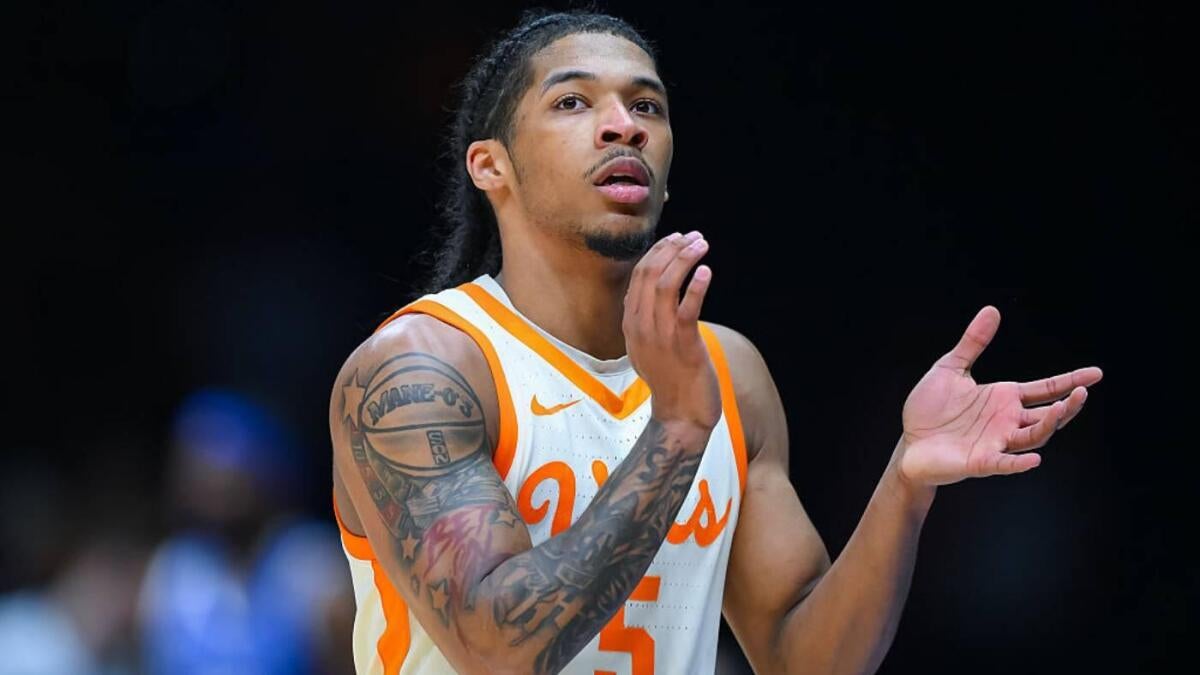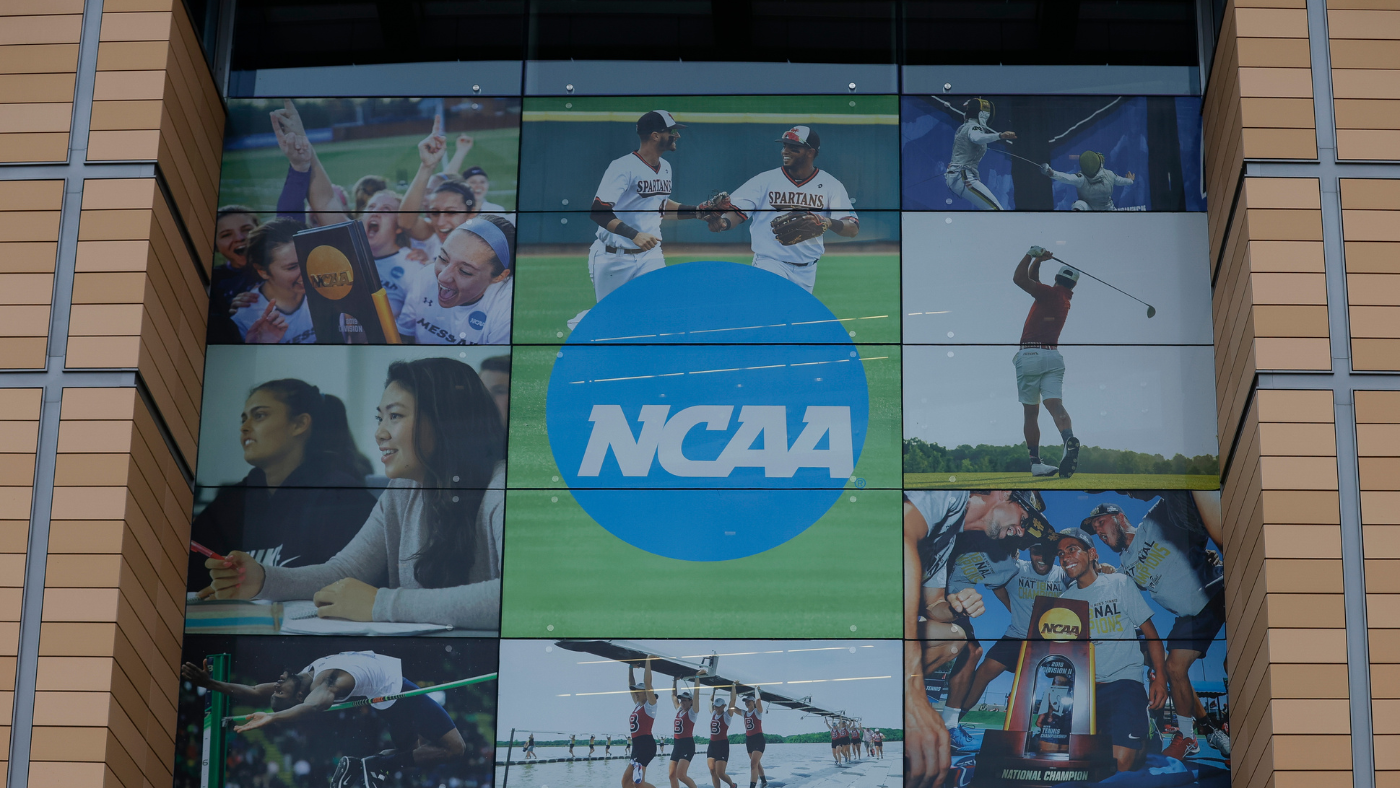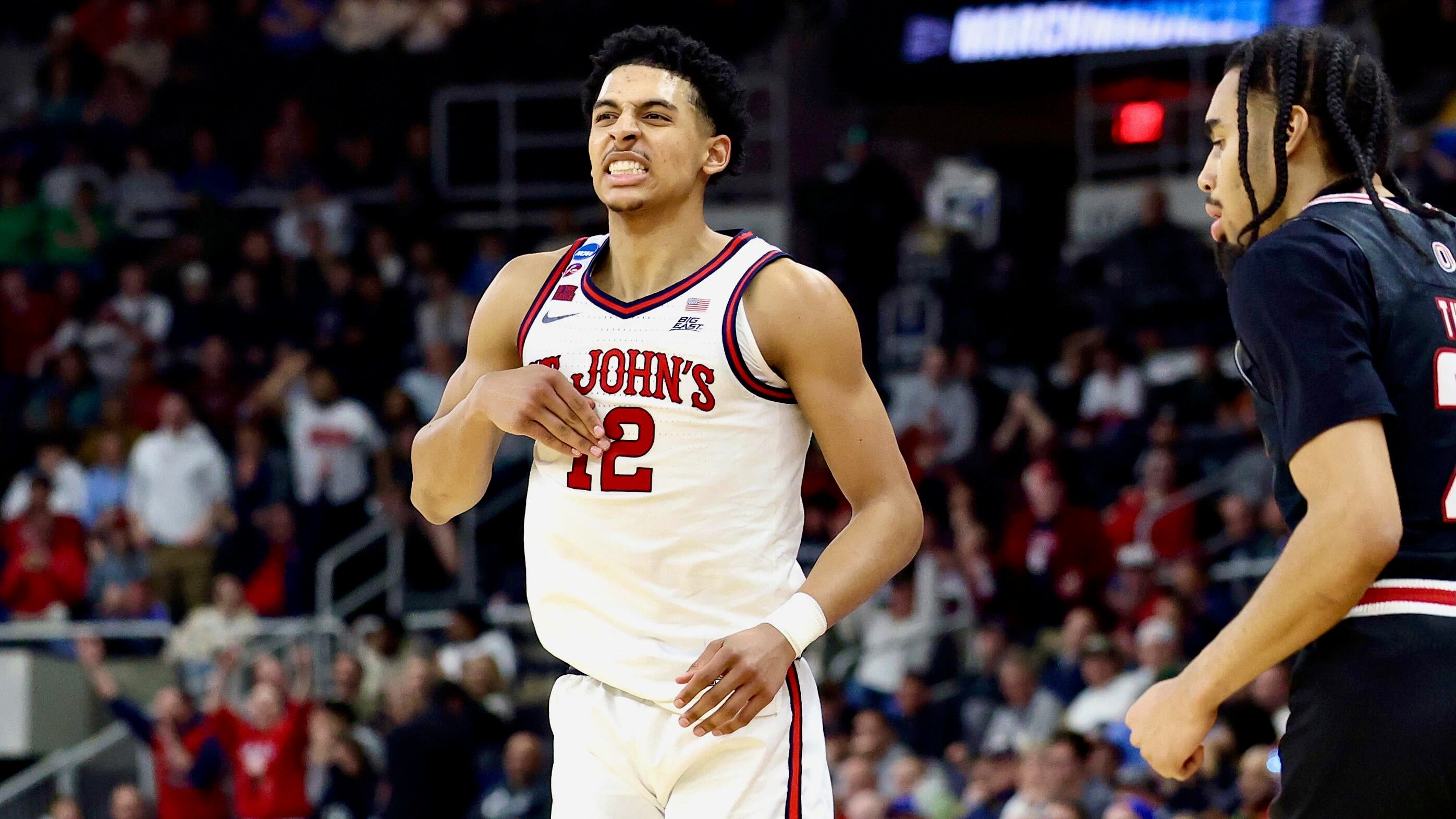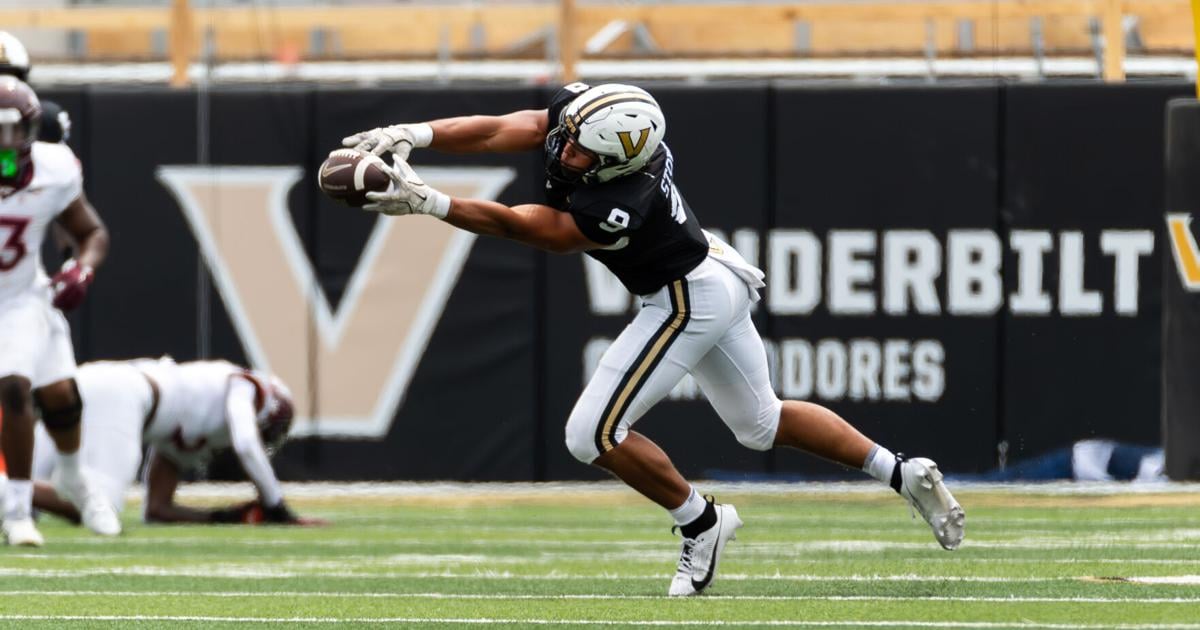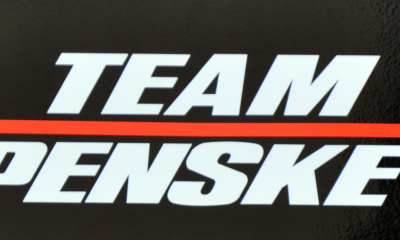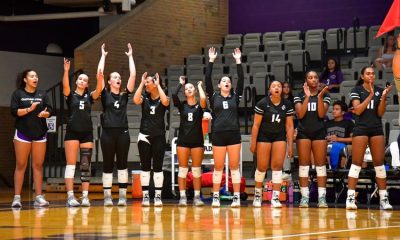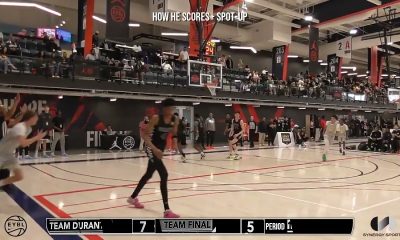Tennessee star guard Zakai Zeigler filed a lawsuit Tuesday against the NCAA seeking a fifth year of eligibility — a potentially groundbreaking case that could have wide-reaching effects across college athletics.
Zeigler, a four-year college player, claims in the suit that he is “arbitrarily barred” from competing in the final year of his five-year eligibility window while pursuing a graduate degree. His legal team argues that the redshirt system favors NCAA institutions over athletes in determining who qualifies for a fifth year of eligibility.
The case could impact not only Zeigler’s eligibility but also set a precedent for future athletes. While there is no direct precedent, the case may gain traction due to momentum in similar antitrust lawsuits against the NCAA.
For example, last year Vanderbilt quarterback Diego Pavia won a case seeking an additional year of eligibility. He argued that the NCAA’s rule counting junior college participation toward overall eligibility violated antitrust laws by limiting his ability to profit from name, image and likeness (NIL) opportunities. A judge granted Pavia an injunction, allowing him to play next season.
Zeigler’s case is unique in that he is the first non-junior college player to seek similar relief through the courts. He used four years of eligibility in four years — a common occurrence — but his lawsuit argues that his class, the class of 2021, is the first of the NIL era “to have their ability to engage in commerce truncated to four years.” Previous athletes in the NIL era received an extra year of “COVID” eligibility, which Zeigler’s legal team says was not extended to him and others in his class.
The case centers on the NCAA’s so-called “four-seasons” rule, which allows athletes to compete in four seasons within a five-year window. Zeigler’s attorneys argue the rule is overly restrictive and unlawfully limits athletes.
“We have filed a lawsuit on behalf of Tennessee basketball standout Zakai Zeigler to allow him to play college basketball in the 2025-26 season,” Andy Cofer, an attorney with Garza Law Firm, wrote in a statement to CBS Sports on Wednesday. “The lawsuit alleges that the NCAA’s rule permitting only four seasons of competition within the five-year eligibility window is an unlawful restraint of trade under federal and state antitrust laws.
“We have requested a preliminary injunction to allow Zakai to compete in the upcoming season while pursuing his graduate studies,” Cofer said. “We look forward to a swift resolution of this matter so that Zakai can begin preparing for next season.”
Whether the case succeeds remains uncertain. After reviewing a copy of the lawsuit obtained by CBS Sports, analysts Gary Parrish and Matt Norlander discussed its potential implications on Wednesday’s Eye on College Basketball podcast.
CBS Sports also spoke with Philip Sheng, a partner at Venable LLP and former Division I athlete who represents clients in areas including trademarks, branding and NIL protection.
Power Four schools could face expulsion from conferences if they don’t sign binding contract, per report
Shehan Jeyarajah
Does the case have legs?
Sheng believes Zeigler and his representation have “a chance” at winning in the case.
“The lawyers did a great job of checking each of the boxes and using prior cases as a roadmap,” he told CBS Sports. “This case is unique from others though because Zeigler didn’t play JUCO or in another NCAA division before playing D1. He’s asking straight up for a fifth year of Division I eligibility. If I were the judge, the biggest question I’d be asking is: where does it stop? If one fifth year is allowed, do we then allow a sixth? Do we let athletes play throughout grad school? That’s the slippery slope argument the NCAA will certainly raise, and it’s probably the hardest issue to tackle, in my view.
“The other interesting wrinkle to this is that the state of Tennessee recently passed a law prohibiting NCAA restrictions on NIL compensation,” Sheng continued. “While the law does not directly relate to NCAA eligibility rules, it reflects a growing trend of state legislatures pushing back against NCAA authority. It’s not surprising that this case was filed immediately after passage of the Tennessee law. It will be interesting to see whether the law influences the judge’s decision.”
Eye on College Basketball’s take
CBS Sports’ Gary Parrish and Matt Norlander both talked at length about the chances of Zeigler’s suit succeeding and the potential implications of it on Wednesday’s show. Parrish and Norlander also wrote some extended thoughts below, with each expressing skepticism that it will be successful, but neither going as far as to predict it ends one specific way or another.
From Gary Parirish
Once upon a time, not too long ago, the NCAA had rules prohibiting student-athletes from taking money from boosters. But, eventually, the legality of that was challenged in court. And now student-athletes are, in many cases, accepting millions of dollars from boosters annually. Once upon a time, not too long ago, the NCAA had rules prohibiting student-athletes from playing four years at the Division I level if they had already competed at the junior college level. But, eventually, the legality of that was challenged in court. And now Diego Pavia will start at quarterback for Vanderbilt next season.
So does Zakai Zeigler seeking a fifth year of eligibility sound crazy?
Perhaps.
But everything I just noted above also used to sound crazy right up until some long-standing “rules” faced legal scrutiny, at which point judges consistently ruled against the NCAA. So, if you’re Zeigler, why not take this shot? Rather than ask why he thinks he should get a fifth year of eligibility, perhaps the question should be why the NCAA thinks it can prevent him from doing it. Or, more specifically, can the NCAA legally stop him from doing it — especially when stopping him would literally prevent him from accepting a job he wants for millions of dollars?
To be clear, I have no prediction.
Who knows where this might go?
But Zeigler’s options for next season appear to be either playing college basketball for millions of dollars or playing professional basketball for much less. Given that reality, if I were him, I’d probably take this same shot, see if I can get my case in front of a favorable judge and hope for the best. Because, don’t ever forget, regardless of how much you or anybody else might dislike the idea of players competing in college for more than four years, it doesn’t necessarily mean the NCAA’s rule will endure legal scrutiny. Either way, I guess, we’re about to find out.
From Matt Norlander
Quite the interesting story we’ve got bubbling up six weeks after the end of the season. If the question is, Do you think this lawsuit will prevail? My answer is no. I would guess that Zeigler is ultimately denied a fifth year of eligibility. He’s played 138 games. I’m not convinced I’m right, but I think it’s more likely than not to lose because Zeigler’s timing isn’t ideal, he hasn’t been restricted on capitalizing on his NIL rights in recent years and the NCAA’s precedent of the redshirt rule isn’t discriminatory (as far as I can tell) on his eligibility case.
Now, that said, I do think this is worth trying. The circumstances in college athletics in 2025 are vastly different than they were in 2020, 2015, 2010 and so on. Zeigler is arguing that some players get the financial benefit of a fifth year by means of having used a redshirt season. I’m surprised it took this long for a player to bring this type of case to the courts. Zeigler’s challenge is being mocked by some, but the foundational reasoning is at least worth exploring. If he won, I wouldn’t have an issue with it. And if that happens, I think this lawsuit will wind up being a major one in this respect: Zeigler being granted a fifth year would open the door to legislation for the NCAA to move toward five years of eligibility for all of its Division I athletes in the years ahead.
For expanded thoughts, listen to Wednesday’s Eye on College Basketball, where Parrish and Norlander talked for more than 20 minutes about this topic.
What Zeigler’s lawyers are arguing
The lawsuit filed Tuesday claims the Sherman Act establishes the precedent that Zeigler should prevail because “the NCAA’s Four-Seasons Rule constitutes an unreasonable restraint of trade with no legitimate procompetitive justifiication in the post-Alston landscape.” Therefore, “the balance of hardships tilts decidedly in Zeigler’s favor,” the suit claims.
Attorney’s in the case must prove that the NCAA itself acknowledges that average NCAA athletes require more than four years to graduate, and they seem prepared to argue this point by stating the NCAA is aware of as much in three ways. From the lawsuit:
(i) its Progress Toward Degree requirement that students complete just 20% of their credit hours each year; (ii) the redshirt rule allowing a five- year participation model, and (iii) the NCAA’s celebrated six-year graduation rate metric.
The lawsuit also states the obvious ways in which Ziegler and other players in 2021, 2022, 2023 and so on will not benefit in ways classes before them could.
Let’s go to another excerpt from the lawsuit:
In the face of these facts, the NCAA itself has recently considered amending its bylaws to allow student-athletes to compete during all five years of the eligibility window, further undermining any claim that the current Four-Seasons Rule serves a procompetitive purpose. Further, since the COVID pandemic, NCAA athletes who began their careers in 2016, 2017, 2018, 2019, and 2020, have been allowed to compete in all five years of their eligibility window. Zeigler’s class is the first during the NIL era to have their ability to engage in commerce truncated to four years.
Attorneys are seeking immediate injunction to allow Zeigler to begin preparing for next steps in either his college or professional playing career.
Zeigler’s worth in NIL the market
Within the lawsuit is a window into the monetary value placed on Zeigler, both past and present, as presentation for what precluding him from playing would restrict him from earning. The suit states he earned $150,000 in his first year and that grew each year, culminating with approximately $500,000 in NIL earnings in his fourth and final season.
Those numbers pale in comparison to the projected value he could be worth next season. More from the lawsuit:
Based on projections from Spyre Sports Group, the NIL collective associated with the University of Tennessee, Zeigler’s NIL valuation for the 2025-26 season ranges from $2 million and $4 million. This valuation reflects the market value of an upperclassman with a proven performance record and high visibility, especially in a high-profile conference like the SEC.
Zeigler is not a projected pick in this year’s NBA Draft despite his value and production at the college level, thus the added incentive for him to seek an additional year of eligibility. NBA players on two-way contracts, which may be more befitting his talent at the next level, earn half the rookie minimum — which amounts to just over $500,000.
NBA Draft decisions: Will the top 2025 transfer portal stars stay or go?
Adam Finkelstein
What a win for Zeigler could mean
While a win for Zeigler — a granting of an injunction to allow him to play next season — would set a precedent in similar cases, Sheng believes the judgement would mostly apply only to him in the case and not serve as a blanket ruling for others.
“If Zeigler is successful in obtaining a preliminary injunction, I expect the ruling will be specific to Zeigler and not apply to all athletes in general,” he said. “This will cause numerous copycat lawsuits to be filed while the NCAA appeals, and it will be up to each court to decide for each athlete in each lawsuit whether to grant an additional fifth year. It could become a mess.
“Interestingly, there have been rumors that the NCAA has been considering relaxing its four-year rule already to allow athletes to play a fifth year. If the rumors are true, a favorable ruling for Zeigler could accelerate those internal discussions and push the NCAA toward formalizing such a rule change.”
Players who could be affected
If granted an injunction in the case, Ziegler’s suit could open a can of worms for players in the 2021 class in a similar spot: those with immense value at the college level but not guaranteed to be high draft picks. As Sheng notes above, the ruling would likely apply only to Zeigler, but it could set off a series of other similar copycat suits. (And among those who would have good cases would be college stars like Kam Jones, Hunter Sallis, Ryan Nembhard and others.
Many of this year’s top available players either in the transfer portal market, high school market or international market are largely in place already having committed to either the NBA draft or to their respective schools. But a potential ruling in favor of the plaintiff would open up the marketplace to a wide range of potentially eligible players with big talents who would be highly sought.

